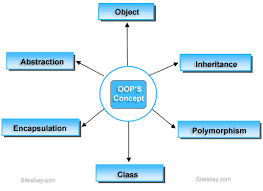Feasibility study is the study which involves the analysis of the problem domain and collection of all vital information in relation to the product to select the best system that meets requirements.In simpler terms, it is an analysis of how successful a project can be carried out.Project managers use feasibility studies to discern the pros and cons of undertaking a project before the invest a lot of time and money into it. Feasibility studies also can provide a company's management with crucial information that could prevent the company from entering blindly into risky businesses.
To determine if the product is technically and financially feasible to develop, is the main air of the feasibility study activity.
The main objective of the feasibility are mentioned below:-
- To analyze if the software meets organizational requirements.
- To determine if the software can be implemented using the current technology and within the specified budget and schedule.
- To find whether the software can be integrated with other existing software.
TOPIC UNDER FEASIBILITY STUDY
The various topic include feasibility study are:-
- Technical Feasibility
- Operational Feasibility
- Economic Feasibility
- Legal Feasibility
- Scheduling Feasibility
- Technical Feasibility:- In technical feasibility the following issues are taken into consideration:-
- Whether the required technology is available or not?
- Whether the required resources are available?
- Manpower programmers, testers & debuggers.
- Software & Hardware.
The assessment focuses on the technical resources available to the organization. It helps organizations determine whether the technical resources meet capacity and whether the technical team is capable of converting the idea into working system. Technical feasibility also involves evaluation of the hardware, software and other technical requirements of the proposed system.
- Operational Feasibility:- This assessment involves undertaking a study to analyze and determine whether-and how well-the organization's needs can be met by completing the project. Operational feasibility studies also examine how a project plan satisfies the requirements identified in the requirements analysis phase of system development.
- Economic Feasibility:- For any system is the excepted benefits equal or exceed the excepted costs, the system can be judge to be economically feasible. Economic analysis is used for evaluating the effectiveness of the proposed system. In economic feasibility the most important is cost benefit analysis. As the name suggest it is an analysis of the cost to be incurred in the system and benefits derivable out of the system.
- Legal Feasibility:- This assessment investigates whether any aspect of the proposed project conflicts with legal requirements like zoning law, data protection acts or social media laws. Let's say an organization wants to construct a new office building in a specific location. A feasibility study might reveal the organization's ideal location isn't zoned for that type of business. That organization has just saved considerable time and effort by learning that their project was not feasible right from the beginning.
- Scheduling Feasibility:- This assessment is the most important for project success; after all, a project will fail if not completed on time. In scheduling feasibility, an organization estimates how much time the project will take to complete.
- Internal Project Constraints: Technical, Technology, Budget, Resource, etc.
- Internal Corporate Constraints: Financial, Marketing, Export, etc.
- External Constraints: Logistics, Environment, Laws, Regulations, etc.





0 Comments
Please do not add any spam link in the comment box